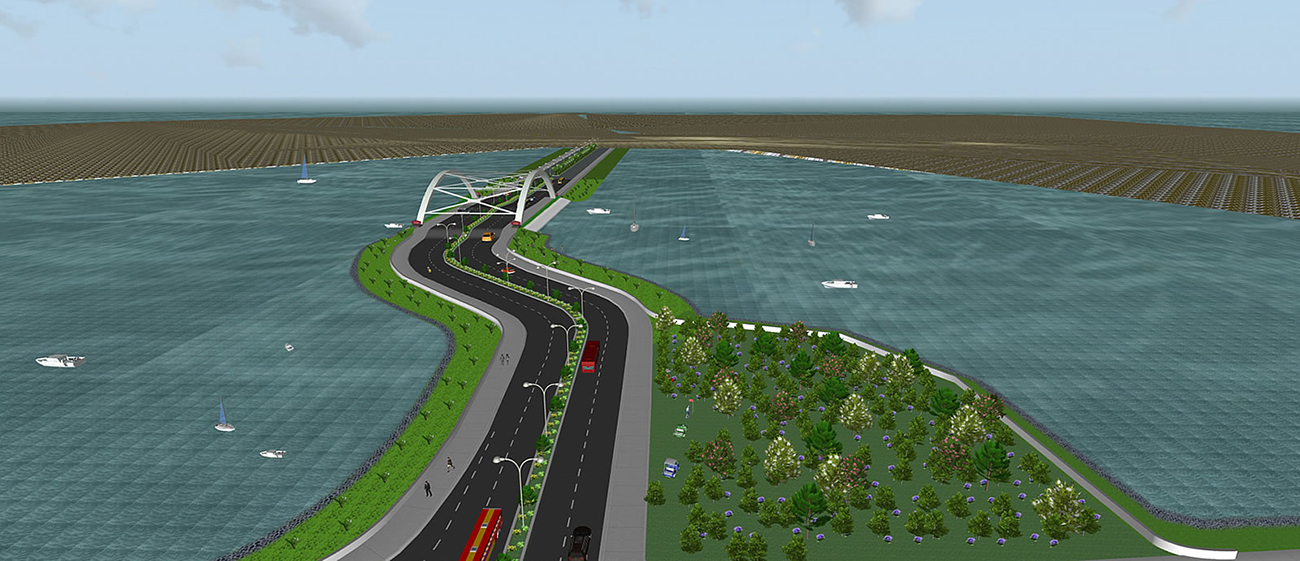
Nigeria’s Gracefield Island: Lowering Carbon Emissions for a Greener Africa
May 29, 2019 — The Big Picture
The impact that carbon emissions have had on our global climate has been well documented. However, the negative impact of fossil fuel-induced carbon emissions has been somewhat under-stated in developing economies, particularly in Nigeria. In contrast, the City of London’s municipal authority actively discourages vehicular traffic in the heart of London by imposing a Congestion Charge. Recently, they also introduced ‘ULEZ’, short for Ultra Low Emission Zone, which effectively prohibits certain categories of vehicles from driving in that part of the city.
Compare Britan’s awareness and their active steps towards curtailing emissions to that of Nigeria’s, where there is no regulatory prohibition on carbon emissions in terms of energy production and mobility. It takes awareness, commitment, and determination from private sector developments like Gracefield Island to voluntarily decide to minimize carbon emissions and, where possible, eliminate carbon emissions in all aspects of lifestyle and operation on the Island. Gracefield Island is a reclamation and development project set to cover a land mass of 100 hectares, and is being designed constructed to function as a green, integrated urban conurbation.
Taking steps to decrease Nigeria’s carbon footprint
For energy supply, the most popular and easily accessible feedstock for Nigeria’s power plants is diesel. It took us over five years of searching and insisting on sustainable feedstock that minimizes carbon emission before we settled for the right partner for our energy supply on Gracefield Island. Here, the feedstock for our power plant will be gas. This is significant, as it means that we will not be connected to the grid, and ensures that our power supply does not greately contribute to carbon emissions.
A green island is an energy efficient island. We appreciate the fact that eliminating or reducing carbon emission begins with being energy efficient. To this end, we have established a Land Use and Development Code that guides our members and development partners towards energy efficient construction methods, which include caulking of buildings, attic insulation, use of double-glazing glass, etc.
In the area of mobility, we have been deliberate in our planning to reduce carbon emissions. First, the whole of Gracefield Island will be designated in about three years as an Ultra Low Emission Zone. Therefore, certain combustion engine vehicles will be prohibited. To this end, being an island, we plan to arrange low emission shuttle transport vans to take people to the island from our transport interchange spot, whch is being constructed by our shoreline.
Low emission mobility initiatives
We are the first new city development in Nigeria to have integrated public charging points for electric vehicles. This is to encourage a wide use of electric and hybrid vehicles on Gracefield Island and throughout the wider city of Lagos. At significant investment cost, we are constructing over 5 km of dedicated cycle lane to encourage the use of bicycles instead of cars on the island and its environs. Our pedestrian pavements are designed specifically to encourage and support walking as a standard means of movement. Nigeria, being a tropical country, has temperatures that average at 30ºC for most of the year. In order to discourage residents and visitors from using their cars and to encourage them to walk, cycle, and be protected from the heat, we are planting well over 1000 trees over a 4 km2 radius.
‘The world is a global village’ might have sounded like a cliché three decades ago, but the effect that climate change has had on the world by the actions and/or inactions of few caries home the truth of this saying. We all have a duty to protect, and indeed, enhance our environment. In cooperation with forward thinking initiatives like the Greenfield Cities Alliance, we are committed to doing our part.
Featured photo © The Gracefield Island